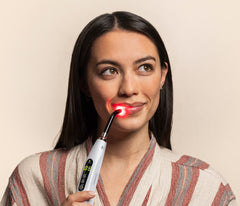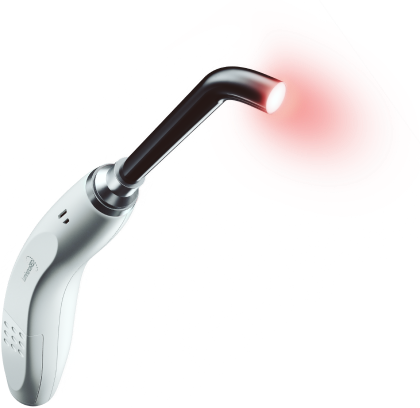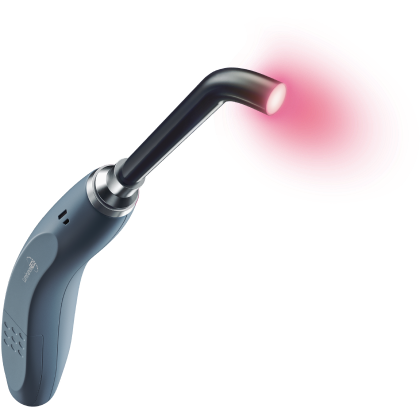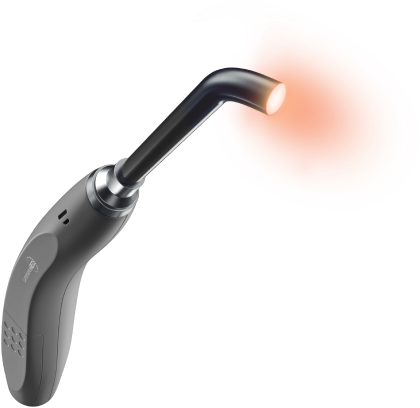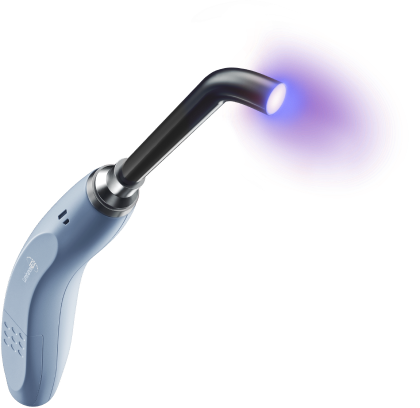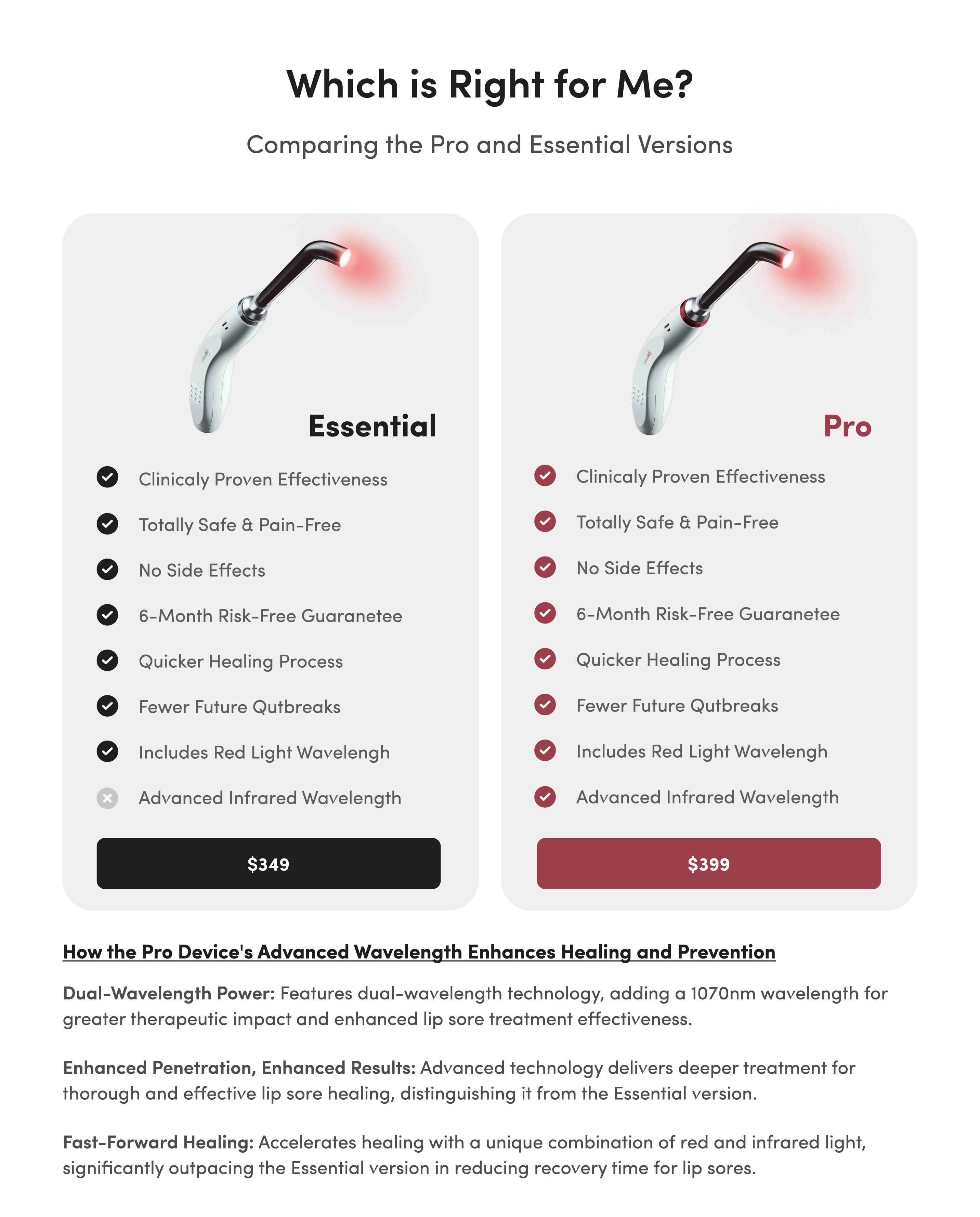The Fastest Way to Get Rid of a Cold Sore: Using At-Home Laser Therapy
For many years, at-home cold sore treatments were limited to household remedies — cold compresses, toothpaste, garlic paste, etc.
Then along came over-the-counter ointments and creams, which eased the symptoms of cold sores and sometimes helped with healing. Finally, prescription antiviral medications entered the scene to reduce viral load and expedite the healing process.
All these treatment options have their place, and you might even find a combination of treatments helpful. But if you’ve exhausted every option and still haven’t found the relief you’re looking for, don’t panic — there’s another way!
At-home laser therapy is a safe, non-invasive means to get rid of cold sores, speed up healing time, reduce pain, and prevent recurrent infections. Keep reading to learn more about cold sore laser treatment at home and how it can help you.
About Cold Sores
Before we explore cold sore laser treatment at home, let’s review what causes cold sores in the first place.
The herpes simplex virus, or HSV, causes both types of herpes: genital herpes and oral herpes (cold sores). Type 1 of the virus, or HSV-1, usually causes cold sores, while type 2, or HSV-2, usually causes genital herpes. However, either type can cause oral or genital herpes through oral and sexual contact.
The life of a cold sore can be broken down into five stages:
- Stage 1: A tingling or itching feeling signals that the lesion is forming. In more extreme causes, this sensation feels more like burning.
- Stage 2: A fluid-filled blister appears on your lip or around your mouth. In reality, this blister is usually a series of smaller blisters that look like one large lesion.
- Stage 3: The blister bursts, releasing the liquid inside. You may see this stage referred to as “weeping.”
- Stage 4: A crusty shell forms over the burst blister. This large scab protects the exposed sore while it heals.
- Stage 5: The scab falls away, revealing healed skin underneath. If the scab falls off prematurely, or if you peel it off before the skin heals fully, the crust will reform.
A cold sore is most contagious before and immediately after the fluid-filled blister bursts. However, a cold sore can spread to another person during all five stages. You can even transmit the herpes virus when you have no symptoms at all — through something called asymptomatic shedding.
What Is Low-Level Laser Therapy?
Next, let’s discuss the details of at-home laser therapy.
Cold sore laser treatment at home is a form of low-level laser (light) therapy, or LLLT. LLLT is used to treat a wide variety of skin conditions, including cold sores, by stimulating cellular regeneration and promoting healing in the skin.
For years, light therapy was only available in clinical settings. However, as technology advance, convenient and affordable at-home treatment devices became widely available for purchase. For example, the Luminance RED is a safe, handheld option that offers this kind of cold sore laser treatment at home.
Applying a 660-nanometer wavelength of light to the affected area provides local immune cells with extra energy. This energy enables the skin cells to fight the herpes virus and stop the virus replication process that causes cold sores.
Is Light Therapy Effective?
Light therapy has been clinically demonstrated to reduce the healing time of cold sores by 49% compared to no treatment at all. This reduces the average cold sore healing time from 4.3 days to 2.2 days. When you’re suffering from an active cold sore, those two days can make a big difference.
Another study demonstrated that light therapy was more effective at relieving pain associated with herpes outbreaks than acyclovir, an antiviral prescription medication designed for treating herpes.
If you pursue light therapy, you’ll have to decide whether to receive cold sore laser treatment at home or in a clinic. Below, we’ll explore the pros and cons of each setting.
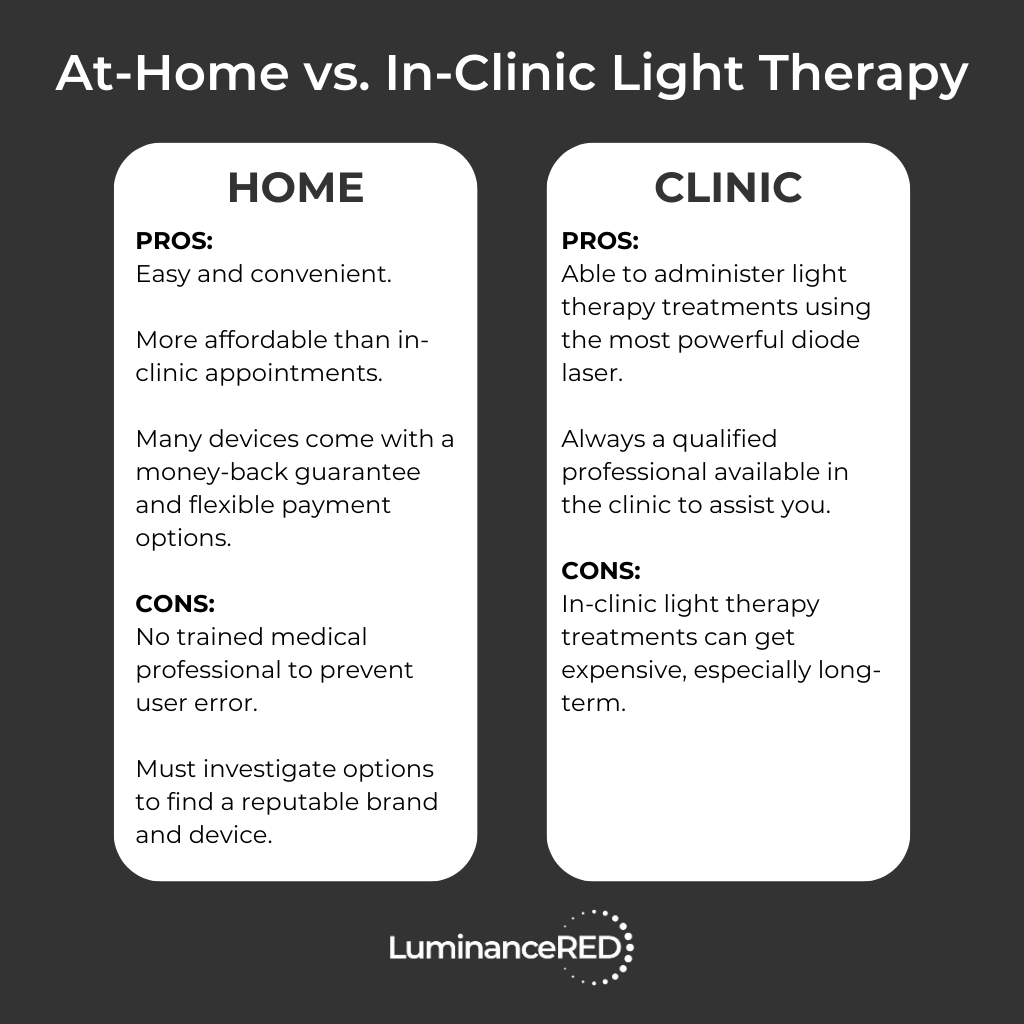
At-Home vs. In-Clinic Light Therapy
In-Clinic Therapy: Pros
A clinic will be able to administer light therapy treatments using the most powerful diode laser. This type of laser is highly effective at treating cold sores and other skin conditions.
If you have questions about the light therapy treatment process, you’ll have a qualified professional available in the clinic to assist you.
In-Clinic Therapy: Cons
The main drawback of in-clinic light therapy treatments is the cost. It’s not a realistic option for many people, especially if you plan to use the therapy long-term to prevent recurring cold sores.
At-Home Therapy: Pros
At-home light therapy is easy and convenient. It’s more affordable over time than in-clinic appointments, and it’s demonstrated to be effective at treating cold sores.
Many devices, such as the Luminance RED, come with a six-month, 100% money-back guarantee and flexible payment options. It’s a truly risk-free option.
At-Home Therapy: Cons
Unless you have a doctor in the family, your at-home treatment sessions won’t be guided by a trained medical professional.
There’s also a chance of user error if you don’t read the device’s instructions carefully. You’ll also have to investigate the devices you consider purchasing carefully to ensure they come from reputable companies and work as advertised.
Other Treatment Options
Prescriptions. Prescription antiviral medications are available in topical and oral formulations through your doctor. For many people with more persistent oral herpes, a combination of prescription medications and non-invasive treatments like light therapy are the most effective choice.
OTC medications. Over-the-counter ointments and creams may also provide some relief from symptoms like pain, swelling, inflammation, itchiness, and irritation. Abreva, specifically, contains an FDA-approved ingredient for helping cold sores heal. Many of these products, too, can work well in conjunction with light therapy.
Home remedies. You might be surprised how many people swear by home remedies for cold sores. It’s best to use caution with these kinds of recommendations, because some of them could actually harm your cold sore or the skin around it. However, others are harmless to try and may even help. Here are a few examples:
Harmless:
- Toothpaste — The sodium lauryl sulfate in toothpaste can’t work miracles, but it may fight the herpes virus and help relieve symptoms if applied at the first sign of a cold sore.
- Crushed garlic — Garlic’s antiviral, antiseptic, and anti-inflammatory properties may make it a good choice to tackle cold sore symptoms.
- Cold compress — Ice wrapped in a towel or a cold pack can help reduce the swelling and pain of a cold sore. Just be sure to wash the surface of the compress afterward.
- Petroleum jelly — Though it won’t help heal your cold sore, petroleum jelly can help relieve dryness and cracking around a cold sore. One note: Be careful not to apply much petroleum jelly to a cold sore scab, which could cause it to fall off prematurely.
Potentially Harmful:
- Lemon juice — Though antibacterial, lemon juice is also highly acidic and will irritate your cold sore. Plus, since cold sores are caused by a virus, the antibacterial property isn’t all that helpful.
- Rubbing alcohol — Because it’s irritating and possibly painful, it’s best to avoid using rubbing alcohol (or hand sanitizer!) on your cold sores.
- Bleach — Some people recommend (carefully) dabbing on bleach to dry out a cold sore. However, bleach is a harsh and potentially dangerous chemical, so it’s better to choose one of the many other options for drying out your blister.
Most of the home remedies listed above only have anecdotal support. They’re generally meant to help alleviate symptoms and ease suffering while a cold sore heals, though some may help expedite healing. For those that do no harm, you can always try them alongside a proven treatment like light therapy.
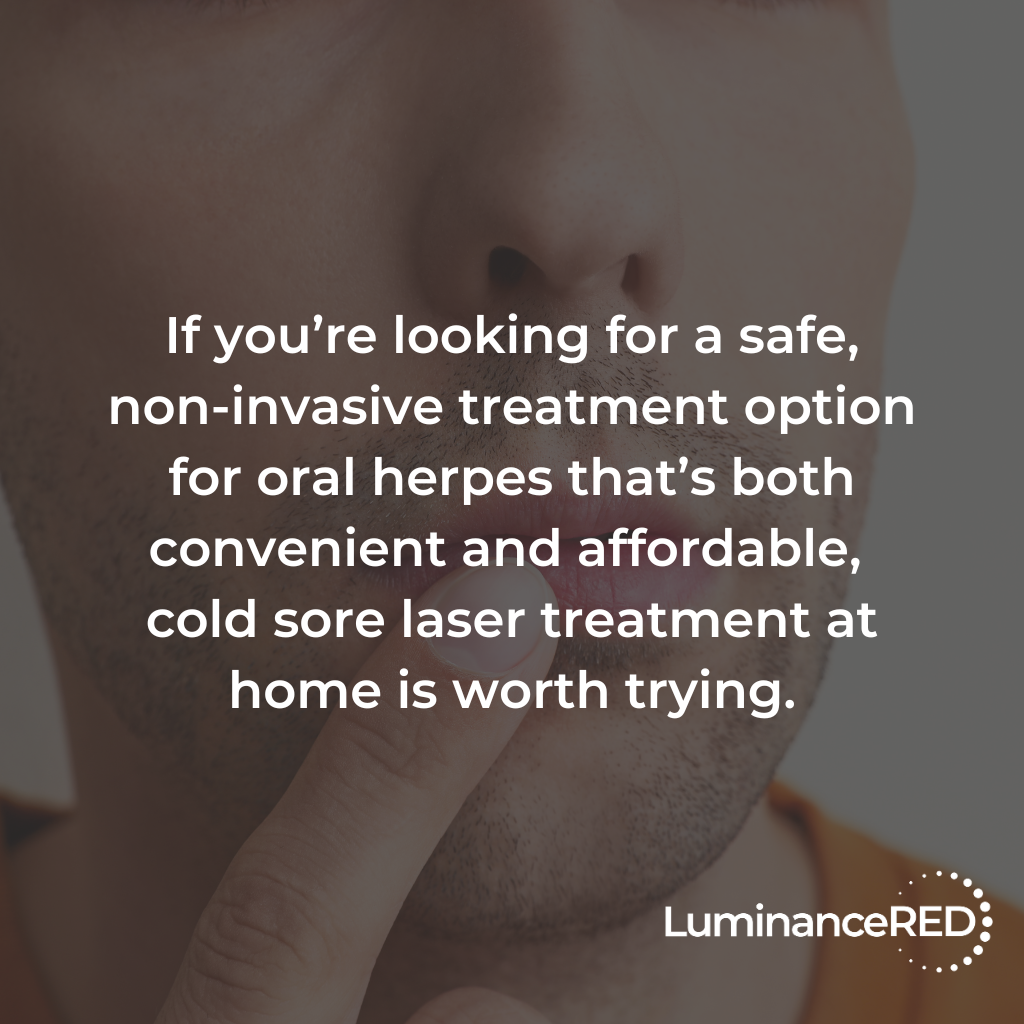
Cold Sore Laser Treatment At Home: Final Thoughts
If you’re looking for a safe, non-invasive treatment option for oral herpes that’s both convenient and affordable, cold sore laser treatment at home is worth trying.
At-home laser therapy is risk-free, safe, and effective for all skin types. Products like the Luminance RED place the power of light therapy right in the palm of your hand!







